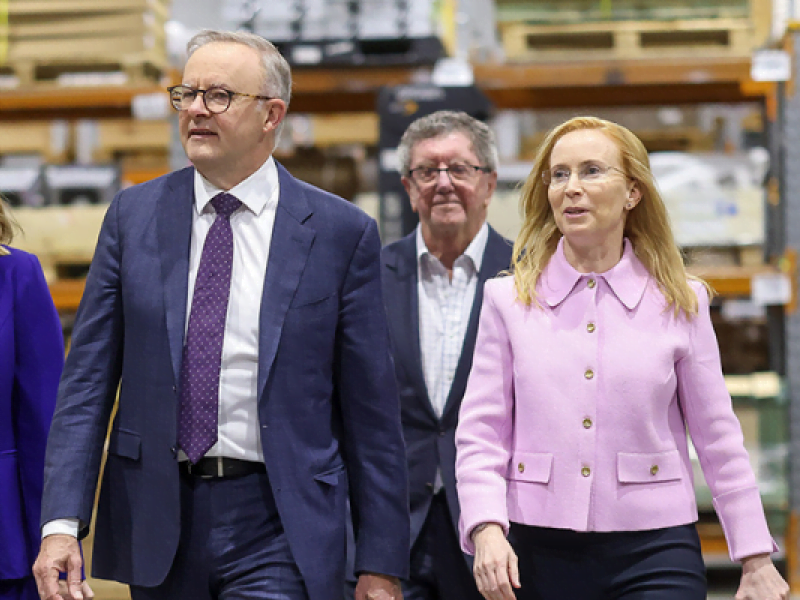Australian EV charging station maker Tritium will shut its Brisbane factory in favour of consolidating its manufacturing operations in the United States, as the firm chases profitability in 2024.
While the company intends to retain and expand its 200-person research and development team in Brisbane, it failed to secure a $90 million investment from the Queensland government to save its Brisbane factory at the end of October.
In a statement to the NASDAQ on Wednesday (AEST), Tritium said the move to Lebanon, Tennessee would “improve operational efficiency and margins to drive profitability and shareholder value”.
This is in part to take advantage of the US$5 billion National Electric Vehicle Infrastructure (NEVI) Formula Program for charger installation.
The program requires Buy America Build America (BABA) compliance, a requirement that US government funded programs use only US “iron, steel, manufactured products, and construction materials”.
The firm set up its Tennessee facility in August 2022.

Tax credits are also available for new installations of EV charging stations through the Inflation Reduction Act.
Tritium also announced on Wednesday that it would decrease head count and expense on professional fees. The firm currently has a deployed fleet of more than 14,500 chargers across 47 countries.
The firm registered a loss of US$120.3 million last financial year, a 59.7 per cent smaller loss last year, despite recording record revenue of US$185 million, 115 per cent greater than the previous year.
In October, the firm received a notice from NASDAQ that its share price had traded below the minimum bid limit for 30 consecutive days, which is grounds for delisting from the exchange.
The firm listed on the NASDAQ in May 2021 at a valuation of about US$1.4 billion. At the time of writing, the firm’s market capitalisation was US$32 million, down from a market cap of $484.8 million when it listed.
Tritium chief executive Jane Hunter said a “strategic restructuring of our business is necessary to drive both profitability and shareholder value”, a transition that is “aligned with the company’s plan to be profitable in 2024”.
“The implementation of this plan, including the closure of the Brisbane factory and consolidating our manufacturing operations in Tennessee, supports the ongoing market competitiveness and positioning of the company as a world leader in its category, driven in part by the highly successful scale-up of our US plant and the NEVI and BABA programs in the United States, while bringing our manufacturing operations closer to our largest markets,” she said.
“These changes reduce our capital requirements and hasten the timing of the company becoming EBITDA positive.”
When Industry and Science minister Ed Husic was asked about a potential federal bailout, he reportedly said he was “very reluctant necessarily make a positive decision, given that there’s a lot more that needs to be worked out within that company”.
Prime Minister Anthony Albanese has previously spruiked Tritium as evidence that Australian manufacturing is positioned to take advantage of the growing demand for electric vehicles, most recently during his trip to Washington at the end of last month.
“In Southeast Queensland today, the fastest electric vehicle charging stations in the world have been discovered, if you like, the technology, the innovation, manufactured and exported there through Tritium. Australia has always been very good at innovation,” Mr Albanese said at the time.
“What we need to get good at is commercialising those opportunities. And the size of the US market means there’s a real potential for partnership, is what we are looking at, collaboration. And that’s what the [Critical Minerals and Clean Energy Transformation Compact] is really about between Australia and the United States that President Biden and I signed.”
Mr Albanese has visited Tritium facilities in Brisbane on three occasions, last visiting in March this year.
The national electric vehicle strategy released by the federal government in April did not include initiatives to support domestic manufacturing.
Do you know more? Contact James Riley via Email.

